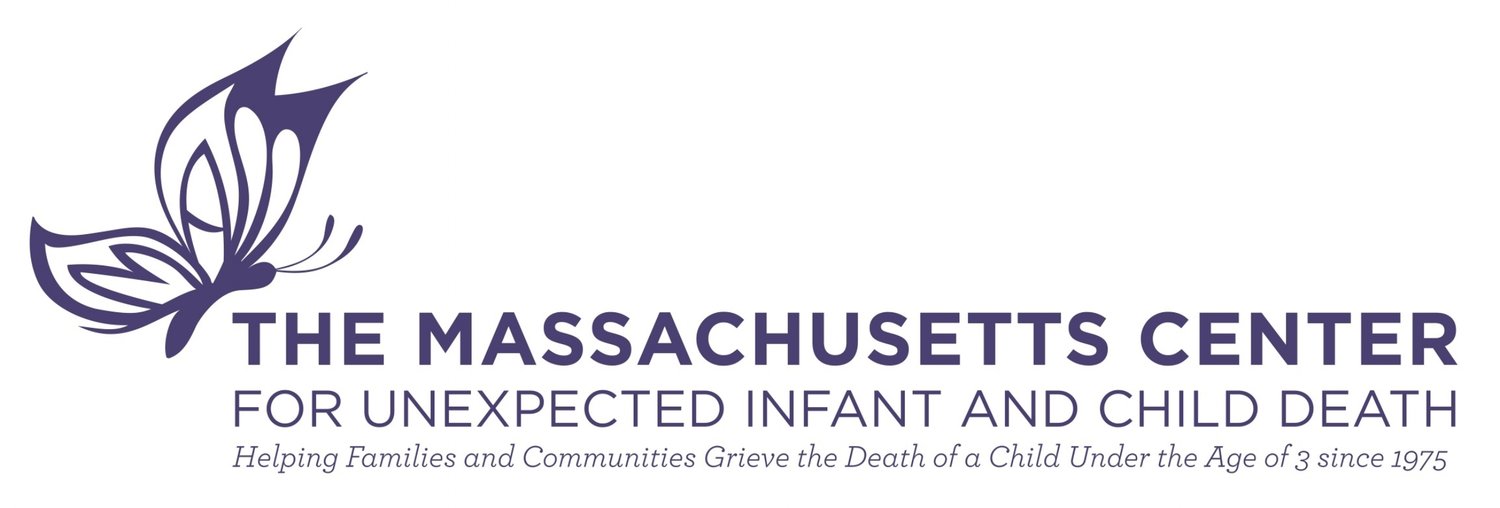Guidelines for Emergency Department Intervention
This information is intended for staff members of the Emergency Department who come in contact with the family at the time of initial crisis.
Through a sensitive approach, emergency staff can support family members as they begin to grieve the death of their child.
When an infant or young child presents in the emergency department of the hospital in a lifeless or near lifeless condition, the child is evaluated and emergency resuscitative measures instituted if necessary and appropriate. It is very reassuring for parents to know that everything possible is being done for their child.
It is important to communicate to families that any diagnosis made in the emergency department is tentative pending an autopsy and death investigation unless there is a documented disease or obvious severe injury.
The medical examiner, who must be notified regarding the infant's death, makes the final decision concerning the performance of the autopsy and determination of final cause of death.
Autopsies are required by law in almost all instances of unexpected infant, child, and adolescent death. It is important for families to know that these procedures are conducted in a respectful manner by specially licensed professionals (“Medical Examiners” in Massachusetts). The collection of specimens typically takes 24-48 hours, at which point, the body can be released to the family or funeral home for commemoration purposes. A preliminary death certificate may be issued at this time and might classify the Cause of Death as “pending.” The final autopsy report should be completed within 90 days, but can take far longer for the Medical Examiner to collect and process all needed information and rule out potential causes of death. Massachusetts families are encouraged to contact the Massachusetts Office of the Chief Medical Examiner at (617) 267-6767 for questions or updates.
The final autopsy report is often a highly technical document that can be difficult for laypeople to understand. The portions of the report that families can understand can trigger strong feelings, as they may reference how certain samples were collected, discuss the appearance of organ systems, or include graphic descriptions of a child’s body. Families may ask for trusted healthcare professionals’ assistance in interpreting the autopsy report, but need to be made aware that not all healthcare professionals may be able to thoroughly understand the document either. Contact us if you, or someone you are support, is seeking assistance with any part of the autopsy process.
Healthcare providers who have been involved in the care of a child who has died can be deeply affected by these difficult circumstances. All providers should be given support in the workplace from peers and managers, through a culture that prioritizes opportunities to reflect, process, and grieve following an event such as this.
This checklist can help to provide support for you and your team as you navigate this complex tragedy
Assign trained clinician (SW, RN etc.) to family. This clinician should be present with family throughout their time in the ED and be available for longitudinal follow-up. Consider any shift-changes, and ensure family is aware of coming/going of staff.
Ensure availability of private space for family.
Offer family the opportunity to visit with any members of hospital clergy.
Family should be kept informed about child’s status before agencies are contacted (e.g. Office of the Chief Medical Examiner [OCME], Law Enforcement, Department of Children & Families [DCF]).
If requested by primary caregivers, notify extended relatives, and involve them as per family’s request.
Notify mandated agencies, per hospital guidelines (OCME, Law Enforcement, DCF). Contact child’s Primary Care Provider.
Ensure that family has meaningful opportunity to be with their child in a private space before saying goodbye. This should not be rushed.
Offer handprints/footprints/hair/clothing/pictures (if permissible) as keepsakes.
Inform family of role of the OCME in taking custody of child’s body, and that by law, an autopsy will need to be conducted. If the cause of death is not obvious, only the OCME can determine the official cause.
Do not use terms like “SIDS” prematurely, as this determination can take months, or years, to formalize.
The time to prepare a final autopsy report varies – do not estimate.
Give family information, and Referral Card, about the Massachusetts Center for Unexpected Infant & Child Death, and offer to make a referral by calling 617-414-7437 or visiting www.magriefcenter.org.
Follow-up with family within the coming days to check-in and offer condolences. Consider reaching out on the anniversary of the child’s death.
Please see Tips for Professionals for more information on how to best support those you’re working with.
